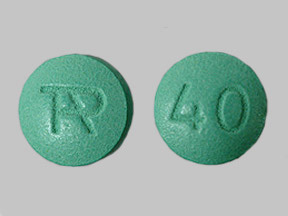Uloric and fatal heart attacks have been connected to one another by an extensive clinical trial. This trial, which was conducted after Uloric had been on the market for nearly a decade, found that people taking Uloric faced a risk of a fatal cardiovascular event that was higher than if they had taken a different prescription treatment for their gout. Since then, the U.S. Food and Drug Administration (FDA) has taken steps to warn doctors and patients of the risks, and numerous lawsuits have been filed against Uloric’s U.S. manufacturer, the Takeda Pharmaceutical Company.
- 2. Uloric and fatal heart attacks
- 3. FDA’s reaction to trial results
- 4. Risks and symptoms of a heart attack

1. What is Uloric?
Uloric is a prescription drug for the long-term treatment of gout, which is a form of arthritis that happens when uric acid accumulates in the joints and tendons. Uloric works by cutting down the uric acid levels in the blood, preventing these acid buildups. Uloric comes in a pill form, and was approved by the FDA in 2009.
Uloric is known to cause numerous side effects. Some of the most common side effects are:
- A skin rash,
- Numbness in the patient’s extremities, like fingers or toes,
- Nausea,
- Shortness of breath,
- Dizziness,
- Fatigue, and
- Joint pain and swelling.
More severe side effects of Uloric include:
- Liver problems,
- Gout flares,
- Severe allergic reactions, including Stevens-Johnson Syndrome, and
- Potentially fatal cardiovascular events, like heart attacks, strokes, and unstable anginas.
2. Uloric and fatal heart attacks
Uloric has long been thought to create a risk for cardiovascular problems like heart attacks. However, it was not until recently that the extent of that risk became clear.
The FDA was concerned about the potential for Uloric to cause cardiovascular problems in patients during the approval process in 2009. This concern led the FDA to refuse to approve Uloric at the high dosage levels the Takeda Pharmaceutical Company had initially requested.1 However, the FDA only briefly mentioned the risk of cardiovascular or heart problems on the drug’s warning label.2
Instead of putting a prominent warning on Uloric’s label, the FDA chose to force Takeda to conduct a postmarket clinical trial. This trial was to focus on the effects of Uloric on the heart conditions of the people who took it to treat their gout.3
While this requirement was issued in 2009 and was supposed to be completed at the beginning of 2015,4 it was not until 2018 that the results of the trial were released.5

The postmarket clinical trial, called the CARES trial, had compared the number of cardiovascular events suffered by Uloric patients with those suffered by people who took the alternative medication for gout, Zyloprim. The trial monitored nearly 3,100 people taking Uloric and Zyloprim over a period of seven years. It monitored the trial participants for the following cardiovascular problems:
- Heart attacks,
- Strokes,
- Unstable angina,
- Cardiovascular death, and
- Non-cardiovascular death.
The results of the CARES trial suggested that people who took Uloric rather than Zyloprim were more likely to suffer a fatal heart attack or other heart condition.6 However, the number of people who suffered a nonfatal heart attack was similar between the two gout medications:
| Uloric (3,098 (100%)) | Zyloprim (3,092 (100%)) | |
| Cardiovascular death | 134 (4.3%) | 100 (3.2%) |
| Nonfatal Heart Attack | 111 (3.6) | 118 (3.8) |
| Total deaths | 243 (7.8) | 199 (6.4) |
3. FDA’s reaction to trial results
When the FDA learned of the results of the CARES trial, they upgraded Uloric’s warning label and issued a safety announcement about the drug’s increased risks of causing a cardiovascular event.
The safety announcement told people taking Uloric to be on the alert for the signs of a severe cardiovascular event like a heart attack, including:
- Difficulty breathing,
- Sudden chest pain or pressure, particularly if it spreads to the shoulder or upper back, and
- Dizziness.7
The updated warning label for Uloric included a boxed warning for fatal heart attacks and cardiovascular death.8 It also narrowed the approved use of Uloric to patients who had already tried Zyloprim and who either did not respond to it or had suffered one of Zyloprim’s side effects.
4. Risks and symptoms of a heart attack
Heart attacks are some of the most severe heart conditions that you can ever suffer. They involve a loss of blood flow to one of the chambers in the heart. The loss of blood flow can damage the tissues in the heart and cause a cardiac arrest – where the heart stops working, completely. Without immediate medical care, a heart attack can be fatal.
The symptoms of a heart attack include:
- Fatigue,
- Pressure or pain the chest, which can travel to the shoulder, back, arm, neck, or jaw,
- Trouble breathing,
- Nausea, and
- Lightheadedness or feeling faint.
Approximately one in ten heart attacks are fatal. The heart damage sustained during a heart attack, however, can drastically reduce a victim’s life expectancy.
People who have suffered a heart attack from Uloric may be entitled to compensation. Lawsuits are being filed against Uloric’s manufacturer, Takeda Pharmaceutical Co., for failing to warn doctors and patients of the risks of a heart attack that come with taking Uloric. These Uloric lawsuits aim to recover compensation for the losses suffered by victims, including for their:
- Medical expenses,
- Lost wages,
- Reduced earning capacity in the future,
- Physical pain,
- Mental and emotional suffering, and
- Their family’s loss of consortium and companionship.
Many of these lawsuits are wrongful death claims, brought on behalf of a deceased victim by their family.

The defective drug lawyers at the Shouse Law Office can help you file a lawsuit if you have taken Uloric and suffered a heart attack. Call them at soon: The statute of limitations for these claims is running.
Legal References:
- FDA Approval Letter for Uloric – 2009.
- FDA Warning Label for Uloric – 2009.
- See note 1.
- See note 1.
- Cardiovascular Safety of Febuxostat and Allopurinol in Participants With Gout and Cardiovascular Comorbidities.
- See note 5. See also Choi H, Neogi T, Stamp L, Dalbeth N, Terkeltaub R, “New Perspectives in Rheumatology: Implications of the Cardiovascular Safety of Febuxostat and Allopurinol in Patients With Gout and Cardiovascular Morbidities Trial and the Associated Food and Drug Administration Public Safety Alert,” Arthritis Rheumatology 70(11):1702-9 (November 2018).
- FDA Drug Safety Communication, “FDA adds Boxed Warning for increased risk of death with gout medicine Uloric (febuxostat),” (February 21, 2019).
- FDA Warning Label for Uloric – 2019.
